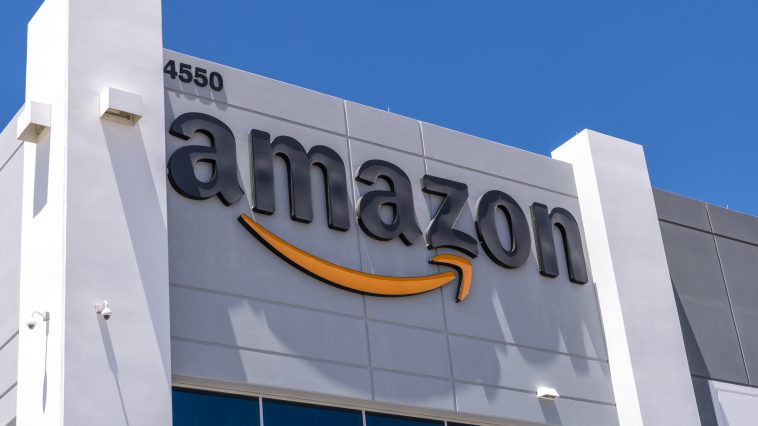Introduction.
Starting an Amazon FBA business is an exciting venture with a lot of potential, but finding the right suppliers can make or break your success.
Suppliers are a foundational part of your business. They provide you with the products you’ll be selling, which directly impacts everything from product quality to customer satisfaction.
Finding the best suppliers is often one of the trickiest and most crucial parts of building a profitable Amazon FBA business.
With the right partners, you’ll have a steady flow of high-quality products that resonate with your target audience; with the wrong ones, you could face inventory issues, subpar quality, or even angry customer reviews.
This guide dives into every aspect of finding, vetting, and establishing relationships with suppliers, including the pros and cons of different sourcing options like domestic versus overseas suppliers, popular sourcing platforms, and tips on building strong supplier relationships.
I’ll also cover some frequently asked questions to clear up any lingering uncertainties.
Let’s get into the details and figure out how you can find the perfect suppliers to set your Amazon FBA business on the path to success!
Why Finding the Right Supplier Matters
Suppliers are more than just people who provide you with stock; they’re a key part of your Amazon FBA strategy.
The quality, cost, and reliability of your suppliers will directly affect the success of your business. Low-quality products can lead to negative reviews, poor sales, and even potential suspension from Amazon.
Likewise, an unreliable supplier can cause inventory shortages that will hurt your sales rank on Amazon, especially if it means you’re constantly running out of stock.
With reliable, high-quality suppliers, though, your business will be able to thrive in Amazon’s competitive marketplace.
The products will meet (or exceed) customer expectations, and you’ll be able to focus on other areas of your business without constantly worrying about inventory issues or quality concerns.
How Do I Find the Right Supplier for My Amazon FBA Business?
Here’s a breakdown of the main ways to find suppliers for your FBA business, along with the pros and cons of each option.
1. Domestic Suppliers
Domestic suppliers are manufacturers or wholesalers within your own country. For U.S.-based sellers, this means sourcing products from the United States.
- Pros:
- Faster shipping times and lower shipping costs.
- Easier communication due to similar time zones and cultural similarities.
- Often better compliance with regulations and safety standards.
- Generally higher product quality (though this is not always the case).
- Cons:
- Higher production costs compared to overseas suppliers, which can make it harder to achieve competitive pricing.
- Limited selection in certain product categories, especially for specific items that are more commonly produced abroad.
2. Overseas Suppliers.
Overseas suppliers, particularly those in countries like China, offer a wide variety of products at lower costs.
Many Amazon FBA sellers find success working with suppliers from Asia due to the lower manufacturing costs.
- Pros:
- Lower manufacturing costs, which can improve your profit margins.
- A larger selection of products across many categories.
- Some overseas suppliers specialize in Amazon FBA, understanding the specific requirements and expectations of this type of business.
- Cons:
- Shipping times are often much longer, with higher shipping costs for fast shipping options.
- Possible communication barriers due to language and time differences.
- Import regulations and tariffs can add complexity and cost.
3. Sourcing Platforms.
Online platforms have made it easier than ever to connect with suppliers from around the world. Here are a few popular ones:
- Alibaba: One of the largest marketplaces for wholesale products, primarily from Chinese suppliers. Alibaba has a wide variety of suppliers and products and is often the first choice for FBA sellers looking for overseas options.
- Global Sources: Similar to Alibaba, but with a smaller pool of suppliers. However, it is known for stricter quality control standards.
- ThomasNet: This is a directory of American manufacturers and suppliers. It’s helpful if you’re interested in sourcing domestically.
- Jungle Scout Supplier Database: This is a paid tool that allows you to search for suppliers by product or company, making it easy to see where other Amazon sellers are sourcing their products.
Tips for Vetting Potential Suppliers
Finding suppliers is only half the battle. Once you’ve identified some potential options, it’s crucial to vet them thoroughly to ensure they meet your standards. Here’s how to do it:
1. Request Samples.
Never skip this step. Ordering samples allows you to check the product quality and see if it meets your expectations. It’s an investment, but it’s worth it.
2. Check Their Certifications.
Depending on the product you’re selling, certain certifications might be required by Amazon or local regulations. This is especially important for items like electronics, toys, or beauty products.
3. Ask for References.
If possible, ask the supplier for references from other clients who have purchased similar products. This can give you insight into their reliability and product quality.
4. Evaluate Communication.
Clear communication is essential when working with suppliers, especially if they’re overseas. Pay attention to how quickly and clearly they respond to your questions.
5. Negotiate Payment Terms.
Many suppliers will ask for an upfront payment, but you may be able to negotiate favorable terms once you establish a relationship. Aim for a 30% deposit upfront and the remaining 70% after quality inspection if possible.
Pros and Cons of Sourcing Options
| Sourcing Method | Pros | Cons |
|---|---|---|
| Domestic Suppliers | High-quality products, faster shipping | Higher costs, limited product variety |
| Overseas Suppliers | Lower costs, wider product variety | Longer shipping, potential quality issues |
| Sourcing Platforms | Access to a wide network, convenient | Costs associated with premium directories |
Frequently Asked Questions (FAQ)
Q: Can I use multiple suppliers for my Amazon FBA business?
A: Absolutely. Many sellers choose to use multiple suppliers to reduce risk and ensure a steady flow of inventory. For example, you might work with a domestic supplier for some products while sourcing others from overseas.
Q: How do I avoid scams when dealing with suppliers, especially overseas?
A: Stick to reputable platforms like Alibaba, and use their trade assurance programs to protect your payments. Also, thoroughly vet each supplier, request samples, and avoid deals that seem too good to be true.
Q: Is it better to work with manufacturers or trading companies?
A: It depends on your needs. Manufacturers are usually the better choice if you need custom products, while trading companies often have lower minimum order quantities and a wider variety of products.
Q: What if my supplier’s minimum order quantity (MOQ) is too high?
A: Some suppliers are willing to negotiate lower MOQs, especially if they’re confident in a long-term relationship. Try explaining that you’re testing the product and may order more in the future.
Q: How do I handle quality control?
A: For overseas suppliers, hiring a third-party inspection service can be a good investment. For domestic suppliers, you can often visit the facility in person or arrange for more frequent communication about quality standards.
Building Lasting Relationships with Suppliers
Maintaining a strong relationship with suppliers can benefit your business in the long run. Good suppliers can be flexible in times of need, may offer discounts for larger orders, and often prioritize businesses with whom they have a strong rapport.
Once you find a reliable supplier, nurture that relationship by being clear about your expectations, keeping communication open, and paying invoices promptly.
Conclusion.
With the right suppliers, you can build a profitable and reliable Amazon FBA business. Remember, the time you invest in finding and vetting suppliers will pay off when you have a smooth, dependable supply chain.
What strategies are you considering to ensure you find the best suppliers for your Amazon FBA business?





GIPHY App Key not set. Please check settings